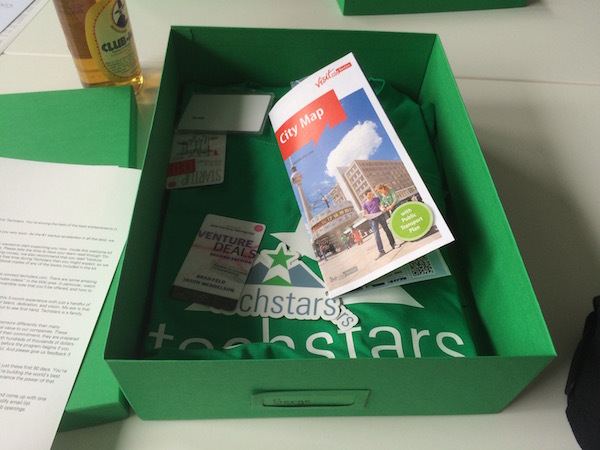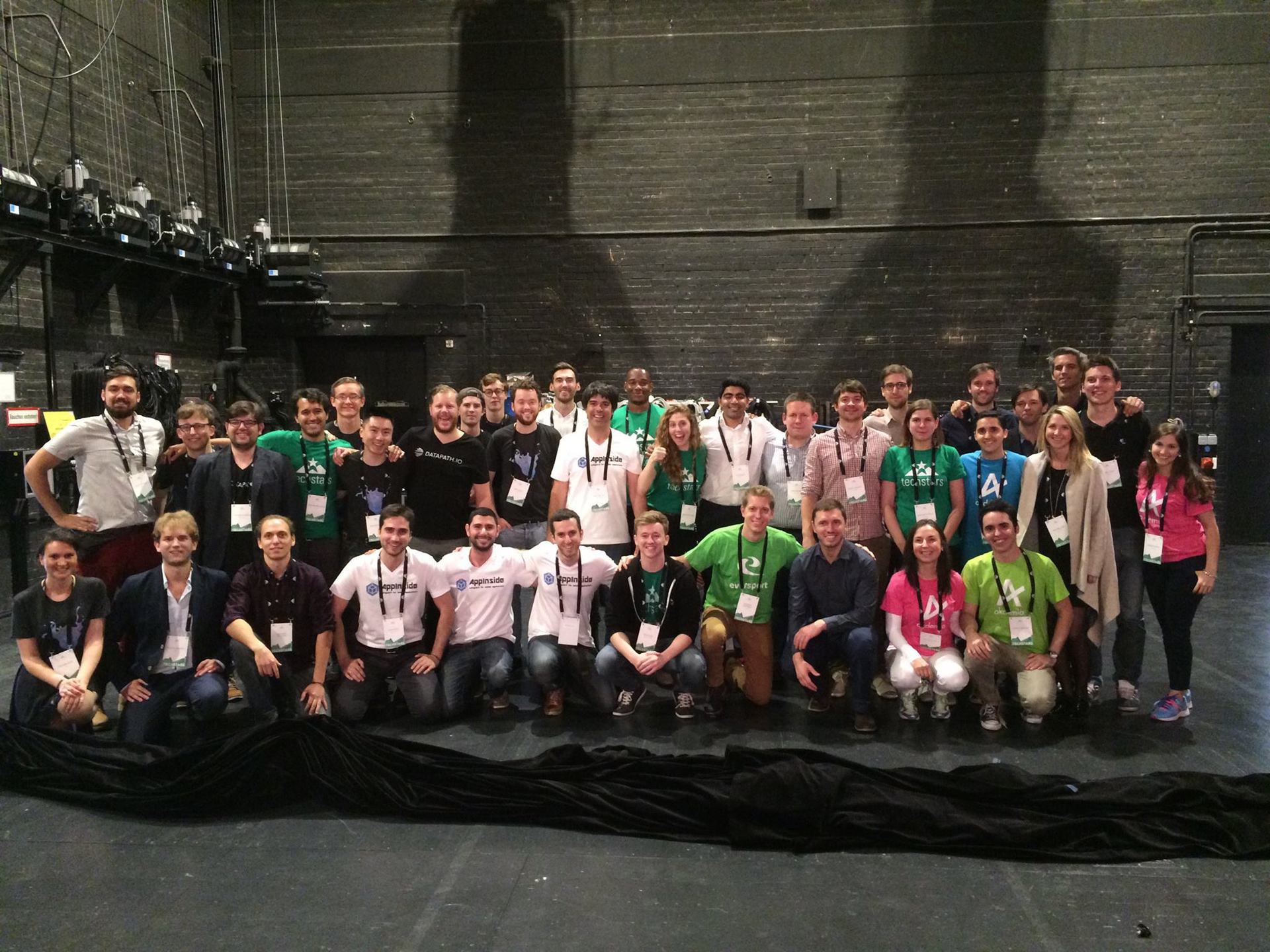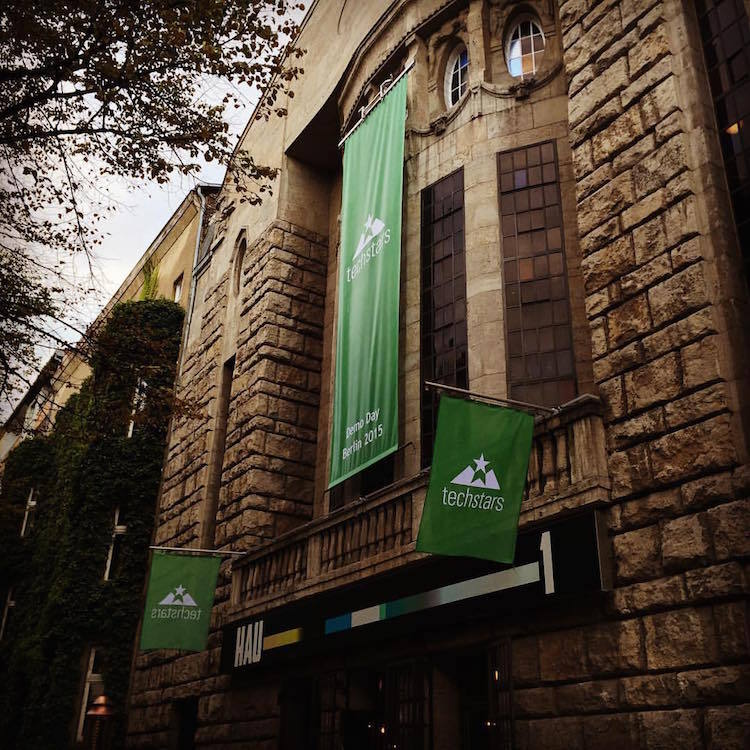Techstars Berlin Program through the eyes of the CTO

Hello, readers of Megamind! My name is Dmitry, I am the co-founder of the educational project Preply, in which I am responsible for the technical part of the product - I write the code myself and manage the development team. This summer, the team took part in the Techstars Berlin incubator program, the European division of the largest American accelerator for startups. At the time, Techstars helped grow such well-known technical companies like Digital Ocean, GrabCad, Keen.io, Next Big Sound, Sengrid.
Preply is a platform for finding and personalized learning with a tutor. The platform operates in the CIS and Poland, and now plans to scale to the German market. Preply has been developing since 2012, and is steadily growing in terms of both the quality of the product and the number of users. Techstars helped to reach a qualitatively new level, and the use of innovative technical solutions has played an important role in this growth process. If not decisive.
Business Card Techstars
From a business point of view, the core value of accelerators is to provide mentoring support, with the help of which it is easier to find a Product-Market Fit and a good investor for the next stage of growth. Since in our team, the question of attracting investment is more our CEO Cyril Bigay, and marketing and product - Sergey Lukyanov, I would like to tell you in this article what the program is from the point of view of the co-founder and techie.
')
Techstars program structure:
- The first week of Mentors Madness - 50 meetings for 15 minutes, 1 for 1 with mentors from different areas of the Berlin ecosystem and not only.
- The second week - reflection after meetings during the first.
- The third week is a continuation of Mentors Madness or another 50 meetings.
- All subsequent time, the team engaged in product development and marketing to demonstrate good results on Techstars Demo Day. At this event there are investors from all over the world, and Techstars and teams present their products and results. Who needs investments get an extra chance to get them.
- The last three weeks before Demo Day, the team rehearsed a pitch almost all the time, preparing pitch decks and presentations.
CTO for CTO
All teams that get into the set, the partner companies Techstars give different buns. Below is a list of what we now use as program participants:
- Amazon Web Services payment;
- Platinum plan for SendGrid project management system;
- free subscription for the Intercom.io communication platform;
- processing without Paypal fees (until the turnover limit is exceeded);
- Digital Ocean server quota;
- licenses for Microsoft products and hosting on Azure.
The logic of distributing elephants for partner companies is as follows: 10 teams are selected from 1000 applications, hence the probability that several of them will become million-strong businesses is quite large (according to Techstars statistics, somewhere around 70%). If at the early stage the company chooses some technical solution, then switching cost to another solution in the future is often too large. Accordingly, it is beneficial for Techstars partner campaigns to give their solution to a startup free of charge in the hope that it will “fly up” with a high degree of probability and will generate enough profits in the foreseeable future to start paying for the product or service.
Connected Vessel System at Techstars
Internal communication between Techstars teams is organized through Slack. In this messenger there is a channel for programmers, where you can communicate with other teams. I expected to meet with them a weaker technical background, but I was pleasantly surprised when I got acquainted with very strong co-founders of technical service stations and programmers in our set. Among them are two doctors (PhD) from Cambridge, former programmers of the cybersecurity service of Israel and just great professionals with vast experience.

In the second month of the program, we managed to start organizing weekly CTO breakfasts, where we gathered in the mornings over a cup of coffee and rolls and discussed the technologies, problems and solutions that each of us encountered during the week. Finding out who benefits from technology and why it was very helpful.
Based on the Conspire solution, teams on Techstars have the opportunity to ask for an intro to any person in the industry. It works as follows: each participant in the program gives limited access to his mailbox, and based on its content, an interaction graph is constructed with whom the user corresponded (by mail message headers). According to the graph, you can find the shortest path to any person with whom you need to make contact. It looks impressive: for example, we looked at how you can get an intro to Ilon Mask, and it turned out that the program director in Berlin knows the co-founder of a startup in Boulder well, he, in turn, often corresponds with Mask. If it were necessary, the founder of Tesla would have managed to go beyond two “handshakes”. Of course, this is not exactly a magic wand, since all the intro follow the double opt-in principle, but it’s still nice to have such an opportunity.
A closed internal social network like Quora provided answers to questions from a community of former Techstars members. We have not been actively working with her yet, but the content there is of high quality.
Mentors
The mentors of our set were more than 100 people. About half of which are investors or work in venture capital funds, a quarter are founders of large and not very startups, the rest are management or early employees of large successful startups like Delivery Hero, Soundcloud, Wunderlist, Zendesk, etc.
There are not so many techies in this environment, but those who came were quite helpful. For example, it turned out to communicate with CTO Wunderlist Chad Fowler about microservices about how they make immutable deployment and support the zoo of solutions with a polyglot technological stack. With Leo from Buffer, they talked about the motivation of programmers and the transparent structure of the company - what are the pros and cons. The guys from Rocket Internet shared how they run and measure 10 A / B tests per day, and the team from Soundcloud talked about how they have a localization and internationalization process at the product level.
Moreover, many mentors helped to solve our previous problems. For example, Stripe regional manager helped instantly unlock an account that was blocked by mistake, PayPal provided access to some internal APIs, and mentors from Google Europe gave feedback on the reasons for closing Google Helpouts. And it’s very cool that you can continue to communicate with the mentors regardless of what we are going to do next, and despite the fact that the acceleration program is over.
Startup Ecosystem Berlin
Berlin is a great place to build and scale a startup. Thanks to Rocket Internet in the capital of Germany a lot of cool technical specialists and marketers appeared. I was very surprised that right in the middle of the city or at some get-together you can easily meet acquaintances before the trip to Berlin.
The high standard of living and relatively loyal immigration laws attract many of our programmers to Berlin. The guys have their own work experience, which is worth adopting, we regularly went to Techstars events together and discussed the technological challenges of each of us. Thanks to friends, you can discover Berlin in a new way and get to the most important events. On the day, there are several really cool mitaps.
We were also lucky that during our stay, AWS Activate was held, thanks to which Techstars managed to get tickets. We were lucky to hear the Amazon CTO presentation on the industry development strategy, Foodpanda service stations on how to technically scale the product in different markets, the guys from Netflix told how they use microservices. In general, for us, as active users of AWS, everything was super useful. During the conference, we arranged several meetings with Amazon consultants, where we discussed the use of their stack in our product in a comfortable environment.
Investor Relations
CEO Kirill Bigay was more involved in negotiations with investors, but the technical team regularly received related tasks to collect various statistics for investors. German investors are quite conservative and prefer to invest in working businesses that generate profits. Berlin also has a very strong Business Intelligence school, where, by the way, there are many former graduates of Soviet universities, and fund analysts prefer to deal with the real numbers of companies, rather than with the ideas on the presentation slides.
Before Techstars, we collected quite a few metrics, did RFM and cohort analysis, but we had to go to the necessary level of cuts and detail on the spot. Through communication with mentors and potential investors, we have significantly improved our level of data processing and business understanding. If before Techstars, reports were generated in the internal admin panel, during the acceleration program, we first evolved into Google Spreadsheets integrated with the base spreadsheet, then started using a bunch of Periscope.io and Amazon Redshift (yes, we have a lot of data :)) but refused because of the high cost and insufficient control. We finally settled on Microsoft's PowerPivot tool - we are building an analytics tool in it that we couldn’t even dream about in Techstars :).
In addition to solving technical problems related to the collection of statistics, we also had to participate in several negotiations with investors and stand near the stand on Demo Day. The CTO, which can talk about the product, and about metrics and marketing, perfectly builds investor confidence. The feedback received only strengthened the view of how important it is that the team of founders of a startup should have comprehensively developed professionals.

Go beyond the possible
In my opinion, for SRT in a small, but fast-growing startup, it is very important not to lag behind and to grow just as quickly in terms of competence. This is sometimes difficult to achieve when working on a single project, in contrast to outsourcing, where projects, technologies and teams often change. In order to “not dry out” and minimize the technical lag, we turn to the microservice paradigm and use new modern technologies.
By itself, the Techstars program has allowed to grow professionally and form a circle of potential mentors from whom you can continue to learn further. Being in a startup ecosystem in Berlin gave a lot of motivation to work even harder on the product and think globally, because in fact all the boundaries are in my head.
Source: https://habr.com/ru/post/294878/
All Articles